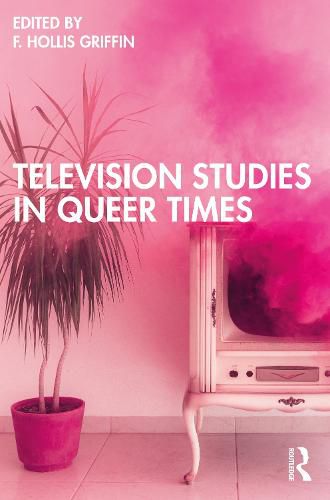Readings Newsletter
Become a Readings Member to make your shopping experience even easier.
Sign in or sign up for free!
You’re not far away from qualifying for FREE standard shipping within Australia
You’ve qualified for FREE standard shipping within Australia
The cart is loading…






This timely collection of accessible essays interrogate queer television at the start of the twenty- first century. The complex political, cultural, and economic milieu requires new terms and conceptual frameworks to study television and media through a queer lens. Gathering a range of well-known scholars, the book takes on the relationship between sexual identity, desire, and television, breaking new ground in a context where existing critical vocabularies and research paradigms used to study television no longer hold sway in the ways they used to. The anthology sets out to confound conventional categories used to organize queer television scholarship, like "programming," "industry," "audience," "genre," and "activism." Instead, the anthology offers four interpretive frames - historicity, temporal play, ideological limitation and industrial contextualization - in the interest of creating new queer tools for studying digital television in the contemporary age.
This collection is suitable for scholars and students studying queer media studies, television studies, gender studies, and sexuality studies.
$9.00 standard shipping within Australia
FREE standard shipping within Australia for orders over $100.00
Express & International shipping calculated at checkout
This timely collection of accessible essays interrogate queer television at the start of the twenty- first century. The complex political, cultural, and economic milieu requires new terms and conceptual frameworks to study television and media through a queer lens. Gathering a range of well-known scholars, the book takes on the relationship between sexual identity, desire, and television, breaking new ground in a context where existing critical vocabularies and research paradigms used to study television no longer hold sway in the ways they used to. The anthology sets out to confound conventional categories used to organize queer television scholarship, like "programming," "industry," "audience," "genre," and "activism." Instead, the anthology offers four interpretive frames - historicity, temporal play, ideological limitation and industrial contextualization - in the interest of creating new queer tools for studying digital television in the contemporary age.
This collection is suitable for scholars and students studying queer media studies, television studies, gender studies, and sexuality studies.